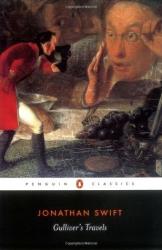
Part of the reason I rated this book low is because I had high expectations. I read an abridged version as a kid and I thought the general story was cool. Part of the reason I rated this book low is because Swift fills the reader's head with unnecessary details until important plot points are lost in the middle of description paragraphs. The events that take place in Gulliver's Travels are interesting, sometimes clever references to 19th century politics and general social commentary: Gulliver passes through a variety of islands with caricatured citizens. Although I do not expect Gulliver or the citizens of these islands to be developed characters, as their only purpose is to serve as a means to tell the story, the intrigue of the plot dissolves when paired with Swift's writing style. Swift is a meticulous writer who insists on heavy descriptions of every detail and, consequently, there is little to no stylistic separation between key points in the story and the personal life of a particular citizen. Gulliver's Travels is also a relatively short read at around 300 pages, so it is fast-paced compared to other books written in similar detail, which further muddies the plot. The dialogue in this book is also near nonexistent; I can't recall a single line. When Swift means to relay information between characters, he will most often do so in paragraph format. As someone who usually enjoys classics, I am disappointed to say I really only valued the skeletal plot outline rather than the book itself.
Grade: 11

Alice Oseman's Heartstopper series blew me away, so I was excited to see her take on a contemporary novel. It was... pretty good. The main character Georgia has a very relatable personality as she experiences her freshman year of college, as she tends to overthink interactions and struggles with finding her identity. The close relationship she has with friends was a really beautiful story to read about, so that part was amazing. Pip was a really funny character, and I liked how she also had depth as a side character and didn't need to be with Georgia at all times. However, the plot revolves mostly around Georgia discovering her sexuality, and that felt very repetitive. It was really cool to have asexual aromantic representation, and finding peace in that identity with the loving LGBTQ+ community. I do just think that Georgia kept having the same discussion with herself and dragging friends into experiments with her sexuality for no reason. For example, I found it weird that her roommate, Rooney, was obsessed with getting Georgia a romantic partner. Georgia mentioned being single once, and now Rooney just won't let it go? The book would have been much better if Georgia had just consulted her friends instead of dragging them into this great mission of finding a partner (but it would be a short book if everyone communicated too well!). Overall, I would really recommend this book to anyone who is struggling with their sexuality or just a new experience like going away for college. It is a great coming-of-age piece.
Grade 12
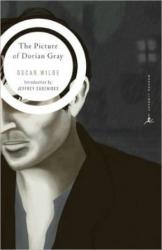
Imagine what could happen, if people possessed magic mirrors that reflected not their faces, but their souls? Dorian Gray, from the novel by Oscar Wilde, gets a chance to fully experience it.
An artist, Basil Hallward, paints an incredibly realistic portrait of an even more incredibly handsome young man. As he’s still innocent, the picture reflects just his appearance, but later, when Dorian starts doing cruel and ugly things, the portrait begins changing too. Every sin, every crime against the other human reflects on the face on the canvas, adding more and more ugly wrinkles, spots and ulcers. His own face, however, stays unaltered, always fresh and young. The portrait shows not what he looks like, but what he truly is. Finally, when Dorian kills the artist, he reveals the picture and the face of an old disgusting man on it.
The entire transformation proves what a high price one has to pay in order to realize his wish to stay young and attractive all the time. Under the influence of his old friend, Dorian loses his life guides and devotes his time to looking for new enjoyments. He does not understand that true beauty comes from the inside. It’s not necessarily visible. It’s not on your face, it’s in your thoughts, words and actions.
The novel is written in magical realism, so even the most incredible plot turns feel like something natural. It involves from the first page and makes the readers go through all the transformations together with the main characters.
Reviewer Grade: 11
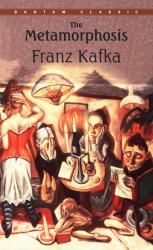
One morning he woke up and discovered himself being a beetle. Not the best beginning of the day for sure. The worst part was that he had to live in the insect's body till the end of his life.
The immediate problems that Gregor faced, such as being unable to get out of his bed, would’ve perhaps been amusing, if he was not afraid of his family’s and boss’s reaction that much. “I will be late for my train to work!” I wish that was my biggest worry if I turned into a beetle. Panic, helplessness and pettiness that he exuded were so strong that I could feel it surrounding me. Written in Kafka’s original style, all the emotions and perceptions are strong and relatable, which makes even the most impossible action seem realistic.
The novel starts hurting, when Gregor notices how strongly his family’s attitude towards him has changed. They all are disgusted with a new creature in Gregor’s bedroom (which we can’t really judge them for). Grete, his sister, seems to be the only one who still believes that her brother’s mind and soul are captured in the beetle’s body and tries her best to take care of the huge insect. As the time goes, Gregor’s behavior changes a lot. His thoughts become more of beetle’s as well as his tastes. Having some rotten food for dinner? Delicious!
The way that he describes the new vision of the world around him, opens a lot of hidden information and evokes true sympathy and sorrow for his fate.
The novella leaves a lot to think about. The transformation that happened to the main character can be interpreted in different ways as well as the changes that his family members go through, trying to adjust to a new life with a human-size beetle living in their house.
Metamorphosis is a great choice for those who feel like they’re living an insect life and their routine is just a big dung ball that they have to push forward all the time.
Reviewer Grade: 11

What You Can See from Here follows a small cast of characters in their small town as the world changes around them. There's Selma, the old woman who sees an okapi whenever someone is about to die. There's the optician, who is desperately in love with Selma and doesn't know how to tell her. There's Selma's granddaughter Luise, our confused and content protagonist. There's Japanese monks, ten-year-old strongmen, experts on light, and one truly unpleasant neighbor. Together, this community will learn to process love, loss, and the ties that bind us together.
This book is something strange and special. It took me a very long time to read, and yet is completely entrancing. There's a scattershot plot, yet I could follow every theme perfectly. It was translated from German, but you can hardly tell with the expert job the translator did at keeping the prose spellbinding and heartbreakingly beautiful. Honestly, the fact that the prosaic writing was still the strongest part of this book despite it being from a foreign language is a testament to the expertise of both writers. Besides the stellar writing, the characters in this book have so much life to them. Losing any of them is a genuine blow to the reader despite the large amounts of foreshadowing, since over the course of the novel we grow to know them as well as the real people in our lives. They're also funny and fascinating, making it so fun just to watch them interact and learn and grow from each other.
There are issues with this book, mainly the pacing. There are a lot of slow parts of the novel that make it difficult to stay focused. But I hesitate to condemn the book for this, since even the slower pacing feels intentional. This is a book all about the slow parts of life, about the gaps in between. A major theme is how taking the time for something or someone is very often worth it, and that's what I think about the book itself. I also appreciated that the book was willing to spend so much time on character and backstories, since it really gave me the feeling that I was living in this small town right alongside Luise. The ending of the book was also wholly satisfying. It was cyclical without being repetitive, and I find myself thinking about it and what it means from time to time.
All in all, this book was mystical and grounded and heartbreaking and hilarious. I would recommend it for anyone looking to learn a bit more about what life and love means, and how our community traps and shapes and grows us all the same.
Reviewer Grade: 12
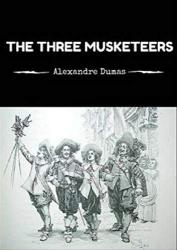
Despite its lack of general theme, Dumas' The Three Musketeers is a beloved classic. The story follows a young man D'Artagnan as he serves under M. de Treville, the head of the French king's musketeers (Athos, Porthos, and Aramis). As he spends more time with the musketeers, D'Artagnan is caught up in the convoluted politics of the king and jealous cardinal. Somehow, however, in the epic tale of adventure, companionship, romance, and betrayal, Dumas' message is lost to the fast-paced plot. His use of dialogue is masterful in creating realistic suspense between characters; not in all 600+ pages is there a dull moment. Overall, however, The Three Musketeers is best read for an interesting story and nothing else. The main cast is well-developed and serve as contrasts to each other. Although the plot itself is well-constructed, the events lack any greater relationship to each other beyond causation. When I picked this book up, I expected the adventure to follow some sort of formula to parallel D'Artagnan's personality; his personality, however, has little impact on the general plot. Dumas' talent in diction and ability to tell a story is evident, and The Three Musketeers was an enjoyable read, as long as you know what to expect.
Grade: 11
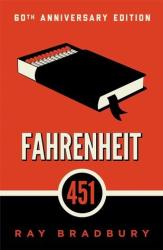
451͒ Fahrenheit is the temperature when paper starts burning. Guy Monteg knows it for sure. He’s a fireman. However, his job is not to put out the fire, but to make it and burn the books. He likes his job, but there is something that he hides from everyone, including his wife.
From every fire, Guy saves a book. In his society, books are forbidden, as they are considered to make people unhappy, evolving complicated emotions and making the readers think. No books means no worries, but a careless life, full of joy and simple entertainment.
One day, Guy Monteg decides that he does not want to live like he used to anymore. He finds a former English professor and asks to teach him to understand what he reads about. Together, they make a plan to save more books in the hope that war will destroy the existing system that they have to live in.
But any secret becomes clear, and the next night Guy gets an order to burn his own house. He destroys it with a flamethrower, as well as his captain, co-workers and the Mechanical Hound.
Monteg escapes. He does not know though, that after all the dangers on his way, he will finally find his destination and meet those whom he will belong to.
It may be hard to feel, but the book is sharp and straightforward. Through the adventure in a fictional universe, Ray Bradbury shows us what might happen, if humanity keeps moving in a direction that will only satisfy basic needs and bring momentary pleasures. I’m sure, some of us can already recognize ourselves with shame in Beatty or Mildred. We’ve already made that first step on the path to the world, where people burn books. This dystopia teaches us that we can always make a difference in the world and change our lives the way that we believe is right. There will be those who will try to destroy you, but there will also be those, whom you will be able to rely on.
The novel creates a tense engaging atmosphere, where you can smell threat in the air and hear the chase behind your back. It does not let the reader go till the very end and stays in mind days after.
Reviewer Grade: 11
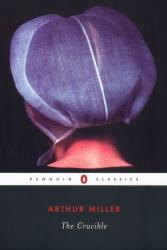
Hysteria, spreading throughout Salem, Massachusetts in the 17th century. Teenage girls, being accused of witchcraft for dancing in the woods. A puppet with a needle that can cost someone’s life. Agreeing on execution in order to protect the good name for your family. Mass trials on people being suspected of doing magic. Sounds crazy? Welcome to the world of The Crucible.
The play by Arthur Miller takes us to Salem in a period of witch trials. Everything starts pretty prosaic: a girl named Abigail wants to get love from a local farmer, John Proctor. As it often happens, she finds a love potion the easiest way to reach the desirable goal, however, she, her friends and the family slave Tituba get caught on doing this ritual late at night.
Nobody wants to be punished. Nobody will believe a slave over his own daughter or niece. Considering these two statements, Abigail decides to avoid a punishment by accusing Tituba and the entire list of other women in a town of being witches.
And here is when things start to go heels overhead. Like a huge snowball that captures everything that is on its way, panic enhances more and more people around. Men and women are being executed for no true reason. Even an expert in demonology is invited to take part in the case. And in all this chaos Abigail makes another attempt to get a chance for a future together with John Proctor.
The action develops dynamically in the play, and the characters add more tension to the plot with their bright personalities. You can’t stay indifferent. You either love or, more likely, hate them. A lot of situation are ironic and absurd, however, the play tastes bitter, when you realize how many people had to struggle because of someone’s stupid wish and lack of responsibility.
The book refers a lot to the time of McCarthyism, which had impacted the author’s life in particular. It makes a strong impact on the audience, especially, in the end, and leaves the readers with a lot of questions: Do people change? Is reputation worth sacrificing your life? Whom to believe and what to deny?
Reviewer Grade: 11

An attempt to create an independent sovereign state, liquidate domestic and foreign enemies and get rid of vestiges of the past, made by… animals. The only fact of animals ruling and managing their own lives sounds absurd enough, but what if under the masks of pigs, horses and dogs real historical figures are hiding?
George Orwell showed brightly the allegorical reality of totalitarianism and communism in his novel Animal Farm. A fairy tale for grown up readers, the book offers an opportunity to observe the story of animals who tried to get independence from their owner and build a society where everyone’s needs and desires would be equally satisfied (sounds a little utopical, doesn’t it?)
Inspired by the Old Major, two pigs, Napoleon and Snowball, supported by all the residents of the farm, carry out a coup d’etat and banish the farmer Mr. Jones. They take the lead and create the laws of the newly created state, the most important of which is “All animals are equal”. However, as the time flows, it turns out that ruling a society is not as easy as it seems to be, especially if at the same time you are trying to benefit from the power that you possess. The animals have to go through propaganda, repressions, socialist competition, ideological pressure and several other social and political changes. Most of them believe their government blindly, and only a few trust their own eyes more than the media. Napoleon, now the only ruler of Animal Farm, discovers that fear and lies are not the worst tools to use, if you want to keep a state in order, especially when the majority of the population consists of sheeps. He goes father and father from where he began and, like many leaders before and after him, becomes a tyrant trying to keep his position and privileges. At the end, he brings the animals back to what they tried to destroy: a totalitarian system where one stands above everyone else. “All animals are equal, but some animals are more equal than others”, the new Commandment says.
The book is written in a simple language and the allegory and similes make the story easy to understand even for the younger readers. All the processes and events mentioned in the novel repeat one of the darkest and most tangled periods of history. But, shown on the example of animals, they make the readers wonder how people, who faced them in real life, could not notice that they were being trapped and fooled.
Compared to some other novels by George Orwell, Animal Farm is pretty easy to read. It would be a perfect choice for those who want to get a better understanding of political and historical processes and enjoy a fictional story at the same time.
Reviewer Grade: 11
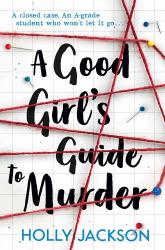
A Good Girl's Guide to Murder is a surprisingly dark and complex book. The main character, Pip, decides to investigate a "solved" murder in her town from five years ago, one that she is very close to. She teams up with the alleged murderer's brother and slowly unravels a well-hidden mystery. The book's organization made an otherwise-complicated crime easier to understand. You would read a chapter, then Pip would summarize the findings in her capstone project diary entry. This information was backed up with occasional maps and diagrams as well. Although I did get lost at some parts with there being so many names, I appreciated there being enough suspects that it was impossible to figure out the mystery until the characters did. Pip was clever and eloquent, so her handling of this personal investigation didn't take away from the story. Not to mention her friends along the way, who were pretty well-developed side characters. If you think the pacing is slow for the first part of the book, keep going!
Grade: 12
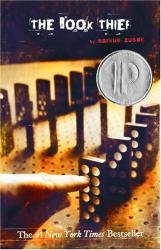
The Book Thief starts in January 1939, in Nazi Germany. The main character, Liesel, was traveling on a train with her mother and brother when her brother suddenly dies. Liesel was only nine at the time, and the wound that was inflicted then, she would bear forever. At her brother's burial site, she stole a book for the first time, earning her the name "The Book Thief". Her story is told from the perspective of Death, who is depicted as an immortal being with feelings and a heart.
Liesel then traveled to Himmel Street, where she lived with her foster parents for the remainder of the book. Liesel made new friends, finds a family, and overcomes the grief caused by her brother's passing there. But most importantly, she discovered the power and impact of words there. The power of words is the central theme or message of The Book Thief.
Throughout the book, Liesel steals more books and becomes braver and more mature. Initially, she was a child who didn't know about all the beauty and ugliness in the world. But as the plot developed, she experienced more of the brutality of WW2 and found her role in her community. After she learned to read, she started to spread the love that was caused by words to her neighbors, by reading out loud during air raids. She also learned to love and understand people better.
The author, Markus Zusak, used the symbolism of colors to illustrate a picture of the world that Liesel lived in. For example, when Death described a scene, the sky was always a different color or texture. When describing a bloody battlefield, the sky was described as plasticky, to show the stillness and emptiness that was caused by the death of soldiers.
I highly recommend this book to readers looking for a thought-provoking and intense book. Liesel's and the other characters' lives were presented in a very relatable way, which will make readers question their own attitudes on life and the world.
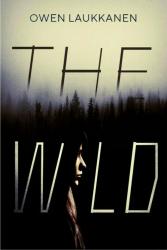
This is the kind of book with so many cliffhangers, you can't find a stopping point. This is a book you'll want to read in one sitting but remember you have homework and have to reluctantly put it down. This is a book that makes your hands sweat and your heart beat faster. The vivid imagery and dynamic characters will make you feel as if you're there yourself. This is a book for adventurers. This is a book for the fearless. This is Underlined Paperbacks and this is The Wild.
When Dawn is sent to a wilderness boot camp for one to many bad decisions, she ends up in a situation her parents nor her ever expected. The people she meets there have bad decisions they are also living with and as the woods get darker, their pasts are revealed. Will they make it out of the camp alive? Is everyone there for the reason they claim they are?
Reviewer Grade: 11
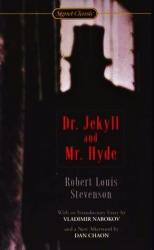
This book was alright. I had to read this for school once and actually quite enjoyed it. This is a great book for anyone who likes quick mystery reads. The plot is one that makes the reader want to continue reading! The book is about a mysterious doctor named Dr. Jekyll. Jekyll is a well respected man but awfully strange. If this sounds interesting I suggest reading it! Yes, it wasn’t my favorite, but I enjoyed the mysterious plot.
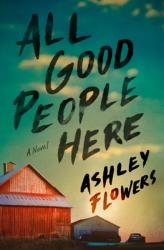
I am a big fan of Ashley Flowers from her career with audiochuck podcasts, so reading her first novel was a no-brainer. The story is about a journalist named Margot who returns to the small town in which she grew up to care for her uncle struggling with memory loss. However, the disappearance of a young girl at the same time causes Margot to reflect on the unsolved murder from her childhood, decades back. Like a true investigator, she sets out to solve both cases once and for all. Previous reviews had hinted at constant plot twists, and I definitely experienced that the whole way through. The case wasn't truly solved until literally the last page. Overall, Flowers' writing style is just as eloquent as her podcasts, with unique characters and eerie suspense. Although a few side characters, like the police officer Margot befriends, are pretty bland, more time spent on the Jacobs family character development seemed like the intention all along. And as soon as one plot twist had been announced, it was written off to make way for the next one quite suddenly. It felt as though some character explanations were still unfinished. Finally, though I hate to say it, such an abrupt ending was kind of unsatisfying. It was almost a five star book through-and-through, and just one more chapter could have done it. Nonetheless, I will recommend this book any day!
Grade 12
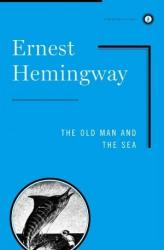
The story of Win and Loss, one of Ernest Hemingway’s most famous works, The Old Man and the Sea introduces us to a fisherman Santiago. He is old, but he has determination and a goal. He wants to catch his Big Fish. He does not give up even after eighty four days of failure and on the eighty-fifth day luck finally smiles at him. Big Fish is on the hook. Three days of confrontation between the fishermen and the fish reveal Santiago’s incredible inner strength and will power. But when he finally comes back to his hut, exhausted and barely alive, he’s left only with a skeleton of his dream and a poor illusion of a better life.
The deep symbols that the story contains can be interpreted in many different ways. Some of the readers may find the old man’s hunt as a waste of effort on a goal that is not worth risking his life. Others, however, will discover Santiago as their role model and an example of undefeatable human nature and endurance on the way to the dream. But this controversy and ambiguity is exactly what makes the book so unique and attractive to the generations of readers.
The language of the novella is typical for all Hemingway's books, simple and straightforward, however, this time the symbolic meaning is hidden under the coat of realistic story. It encourages the reader to think and reflect on the pages that he’s read and on his own life as well and find his own interpretation of the fisherman’s story.
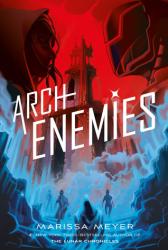
There's a trope in comic books about how supervillains' schemes sometimes make sense. Maybe they want to solve some systemic problem with society, but the way they go about it is all wrong. There's often a leap of logic between "let's solve global warming" and "I want to build an ice ray to freeze the entire planet." Because this trope falls apart in the cartoony logic that graces the pages of comic books, it's refreshing to see some truly fantastic moral ambiguity between villains and heroes (all with quite unique powers and abilities) in Marissa Meyer's Archenemies.
While there were a few moments of illogical villains in Renegades , this sequel really delves into these characters who think they're doing the right thing—from both sides. I love how there are heroes who take their "we are justice" ideology too far, while there are also villains out there trying to improve the broken society that favors the heroes' worldview. The "who are we to judge?" theme that keeps coming back in this book really highlights the entire problem with the superhero genre. This brilliant handling of the concept of true justice should be the best reason to pick up and read this series.
On top of this, there's the heart-pounding thrill of Nightmare continuing to infiltrate the world of the heroes. She takes calculated risks to accomplish her goal, but there's also tremendous character growth when she realizes that maybe being a hero might be better than getting her vengeance. Of course, these doubts creep in as she develops deeper feelings for Sketch—who also has a lot of "secret identity" antics that made the whole thing entertaining to read.
A shining example of the moral ambiguity of superheroes, I give Archenemies 5.0 stars out of 5.
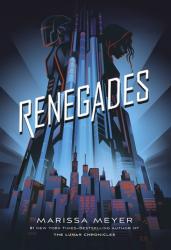
After having finished Marissa Meyer's Lunar Chronicles, it pleased me to learn that her next major series was about superheroes. After all, the fairy tale sci-fi retelling was great, but its source material always felt like it was for girls. Just like getting the choice of a girl's toy or a boy's toy in a Happy Meal, Renegades felt like it was meant for the guys. Obviously, I'm being a little facetious, as both series are definitely for all genders. The twist with this book is that the main character is a villain in a world filled with superheroes.
Renegades feels like the pendulum swing away from the superhero purism that saturated the market with the rise of the Marvel Cinematic Universe. Shows like The Boys and Invincible—both of which started as comics themselves—bring up interesting thought experiments when questioning the legal and moral repercussions of superheroes in the real world. Renegades does this by following Nightmare and her desire to take down the superheroes who were supposed to protect her family but didn't. The questions Renegades asks are important when the status quo of a society revolves around superpowered humans.
While the execution of this book is nearly flawless, the crux of the climax felt off to me. I get that not all villains would be logical in their actions—some may even suffer from mental health issues—but the big twist seemed like it went against what all the villains wanted to accomplish. Sure, it pushed Nightmare to make some tough decisions about where her loyalties lay (which is a continuing theme throughout this trilogy), but there could have been a better way to go about it. Regardless, this was an extraordinarily strong start to another classic series by Marissa Meyer.
An excellent superhero book told from a villain's perspective, I give Renegades 4.0 stars out of 5.
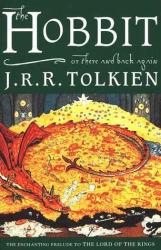
If you are looking forward to diving into the fascinating world of dwarves, wizards and elves and feel ready to fight evil wolves, man-eating trolls and a fire-breathing dragon Smaug, then The Hobbit by J. R. R. Tolkien is definitely for you. A warm children’s fantasy novel, which, however, will captivate the hearts of many adults, takes you to the atmosphere of fairy tales that you were listening to by the fireplace as a kid.
The main character, hobbit Bilbo, at first reminds us of ourselves. He, as all the hobbits are supposed to do, loves eating good food, spending time at home and making their houses cute and cozy. However, his routine crashed as a dropped pot, when a wizard Gendalf knocked at his door. Welcoming him inside, Bilbo could not even imagine that soon he would go on a true adventure all the way to the Lonely Mountain and save an ancient treasure from the claws of a furious dragon. On his way he will meet many different creatures, make friends and enemies, defeat mountain trolls, get captured by giant spiders, get into another captivity right after that, outplay Gollum in the caves and get the magical ring. But what is more important, Bilbo will turn into a brave warrior (what a shame for the entire generations of hobbits!) and a loyal companion.
The author's writing style and original universe makes it impossible to stay indifferent to the story. Kind and soft narration wraps you as an old blanket and keeps you cozy even in the coldest evenings. Younger readers, as well as their parents, will find many life lessons on the pages of The Hobbit, such as why it is important to make smart choices, appreciate your friendships and be ready to help those who are in trouble. The book is an awesome pick for both family time and independent reading.
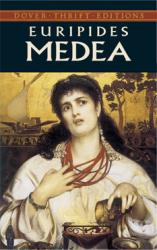
Medea by Euripides is a play about a princess in Greek mythology. She is betrayed by her husband when he weds another woman and Medea vows to take revenge. She plans to hurt everyone who hurt her, but by doing this she puts people who did her no wrong at risk. Will she end up getting revenge and living out her days or will she join the same fate that she curses down upon? I recommend this book to anybody who is into Greek mythology or would like to get into it. This is a fast read of about 50 pages.
Jaala 12
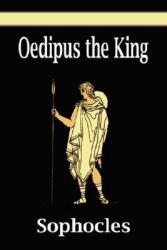
Oedipus the King by Sophocles is a Greek play that follows the tragedy and downfall of this King. He is presented by a messenger that a disease has spread across his land and he needs to save his people. He sets out in search of this issue, but slowly comes to the realization that this something is a someone within his borders. What if this someone who needs to be eradicated is one who governs it? I would recommend this book to anybody who likes Greek mythology or the adventure genre.
Jaala 12





 We are experiencing recent outages to the online catalog, PPLD mobile app, and Libby/OverDrive. Click here to learn more.
We are experiencing recent outages to the online catalog, PPLD mobile app, and Libby/OverDrive. Click here to learn more.